|
Books Should Be Free Loyal Books Free Public Domain Audiobooks & eBook Downloads |
|
|
Books Should Be Free Loyal Books Free Public Domain Audiobooks & eBook Downloads |
|
Religion |
|---|
|
Book type:
Sort by:
View by:
|
By: Susan Warner (1819-1885) | |
|---|---|
 Opportunities
Opportunities
| |
 The Old Helmet, Volume I
The Old Helmet, Volume I
| |
 What She Could
What She Could
| |
 Daisy
Daisy
| |
 The House in Town
The House in Town
| |
 Nobody
Nobody
There are many romantic tales about a handsome and rich man falling in love with a beautiful lower class woman over the objections of his family. Remember Elizabeth Bennett and Fitzwilliam Darcy? however, it takes more than a good woman to secure a man's happiness. He has to have mental strength. It is not certain that our hero, Tom, has that. Lois is a great woman. However, according to his sister, she is a "nobody." Does money and position control everything? Certainly not. Good people deserve to be happy... | |
 Daisy in the Field
Daisy in the Field
| |
 The Old Helmet, Volume II
The Old Helmet, Volume II
| |
 Melbourne House, Volume 1
Melbourne House, Volume 1
| |
By: Ellen White (1827-1915) | |
|---|---|
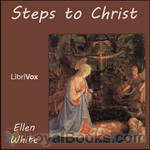 Steps to Christ
Steps to Christ
Ellen Gould White (1827 – 1915) was a prolific Christian writer, authoring 40 books in her lifetime. She was active in the Millerite movement, and was one of the principle founders of the Seventh Day Adventist Church.Steps to Christ, first published in 1892, is her most popular book. It has been translated into more than 70 languages. The theme of the book is how to come to know Christ better. | |
By: Pansy aka Isabella Alden (1841-1930) | |
|---|---|
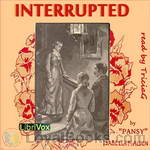 Interrupted
Interrupted
Alternately titled Out in the World. Claire Benedict is a capable, responsible, solid young Christian woman. Everyone leans on her for support and depends on her to do much that needs to be done in her church and social circle. But then her businessman father dies unexpectedly and leaves the family almost penniless, interrupting her tranquil, fulfilling life. Written by Isabella Alden under the pen name Pansy. | |
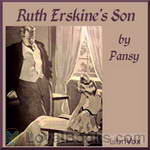 Ruth Erskine's Son
Ruth Erskine's Son
Seventh book in the Chautauqua Girls series. Written by Isabella Alden under the pseudonym “Pansy.”Erskine, Ruth's son (a 5-year-old at the end of Judge Burnham’s Daughters) is now a grown man, and Ruth is 50-something. He brings home an American wife from Paris, a woman who seems to want to tear apart mother and son. But Irene has some big secrets to hide. | |
By: Thomas More (1478?-1535) | |
|---|---|
 Dialogue of Comfort Against Tribulation With Modifications To Obsolete Language By Monica Stevens
Dialogue of Comfort Against Tribulation With Modifications To Obsolete Language By Monica Stevens
| |
By: Henry Charles Lea (1825-1909) | |
|---|---|
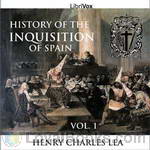 History of the Inquisition of Spain
History of the Inquisition of Spain
The first volume of Lea’s monumental work on the Inquisition of Spain, covering its origin and establishment and its relations with the state. Also included are appendices listing Tribunals, Inquisitors-General, and Spanish coinage. | |
By: John Mark | |
|---|---|
 Jesus of Nazareth, A Biography
Jesus of Nazareth, A Biography
"Jesus of Nazareth, a Biography, by John Mark," recognizes the author of the second Gospel as that "John, whose surname was Mark" (Acts 15:37), whom Barnabas chose as companion when he sailed for Cyprus on his second missionary journey. In making use of the new title, the plan of the Editor is to present "The Gospel: According to Mark" as it would be printed were it written in the twentieth rather than the first century. (Introduction from Forward, by D. Appleton & Co, Publishers, 1922) | |
By: Valmiki | |
|---|---|
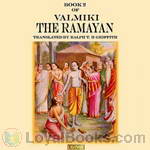 The Ramayana Book 2
The Ramayana Book 2
The Ramayana is an ancient Sanskrit epic. It is attributed to the Hindu sage Valmiki and forms an important part of the Hindu canon (smṛti). The Ramayana is one of the two great epics of India, the other being Mahabharata. It is the story of Rama, who emabrks on an epic journey followed by the fight with Ravana, the demon king who abducted Rama's wife, Sita. The epic depicts the duties of relationships, portraying ideal characters like the ideal servant, the ideal brother, the ideal wife and the ideal king. (Introduction by Om123) | |
By: William Law | |
|---|---|
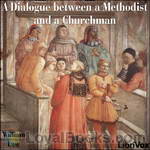 A Dialogue between a Methodist and a Churchman
A Dialogue between a Methodist and a Churchman
William Law (1686-1761) was an Anglican priest, Christian mystic, and one of the most prominent, popular, and controversial theological writers of his time. Law revolutionized the way in which 18th century Anglicans engaged the spiritual aspect of their faith, and his popularity rivaled that of John and Charles Wesley. Law adapted mystical practices from early church writings to the practice and doctrine of the modern British church, with the intention of equipping the Anglican layman to pursue intimacy with Christ... | |
By: George Müller (1805-1898) | |
|---|---|
 Answers to Prayer, from George Müller's Narratives
Answers to Prayer, from George Müller's Narratives
Mr. Brooks, in this compilation, has endeavored to select those incidents and practical remarks from Mr. Müller's Narratives, that show in an unmistakeable way, both to believers and unbelievers, the secret of believing prayer, the manifest hand of a living God, and His unfailing response, in His own time and way, to every petition which is according to His will. (From the Preface) | |
By: Bahá'u'lláh | |
|---|---|
 The Arabic Hidden Words
The Arabic Hidden Words
Kalimát-i-Maknúnih or The Hidden Words is a book written in Baghdad around 1857 by Bahá'u'lláh, the founder of the Bahá'í Faith. This work is written partly in Arabic and partly in Persian. The Hidden Words is written in the form of a collection of short utterances, 71 in Arabic and 82 in Persian, in which Bahá'u'lláh claims to have taken the basic essence of certain spiritual truths and written them in brief form. Bahá'ís are advised by `Abdu'l-Bahá, the son of Bahá'u'lláh to read them every day and every night and to implement its latent wisdom into their daily lives... | |
By: Robert V. Russell (1873-1915) | |
|---|---|
 The Tribes and Castes of the Central Provinces of India, Volume 1
The Tribes and Castes of the Central Provinces of India, Volume 1
| |
By: Ferrar Fenton (1832-1920) | |
|---|---|
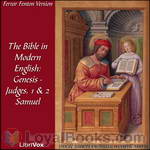 The Bible in Modern English: Genesis - Judges, 1 & 2 Samuel
The Bible in Modern English: Genesis - Judges, 1 & 2 Samuel
Work on the translation began in 1853 by a London businessman called Ferrar Fenton (1832–1920). The complete Bible was first published in 1903, though parts were published as separate volumes during the preceding 11 years. The translation is noted for a rearranging of the books of the Bible into what the author believed was the correct chronological order. In the Old Testament, this order follows that of the Hebrew Bible. The name of God was translated throughout the Old Testament as "The Ever-Living"... | |
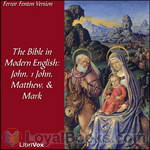 The Bible in Modern English, NT: John, 1John, Matthew, Mark
The Bible in Modern English, NT: John, 1John, Matthew, Mark
The ordering novelty in the New Testament is that it places the Gospel of John and the First Epistle of John at the beginning before the Gospel of Matthew, thus placing the Acts of the Apostles immediately after the Gospel of Luke. Work on the translation began in 1853 by a London businessman called Ferrar Fenton (1832–1920). The complete Bible was first published in 1903, though parts were published as separate volumes during the preceding 11 years. The translation is noted for a rearranging of the books of the Bible into what the author believed was the correct chronological order. His translation of the New Testament is based on the Greek text of Westcott and Hort. | |
By: Henryk Sienkiewicz (1846-1916) | |
|---|---|
 Quo Vadis: a narrative of the time of Nero
Quo Vadis: a narrative of the time of Nero
| |
By: Amy le Feuvre (d.1929) | |
|---|---|
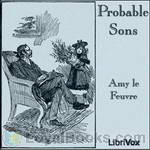 Probable Sons
Probable Sons
Little Milly is left an orphan after the death of her mother and sent to live with her bachelor uncle, who has no use for children, especially of the female variety. As the days go by, his heart warms to his endearing niece who wants all probable sons to come home, including her very own probable uncle. | |
By: Amy Le Feuvre (1861-1929) | |
|---|---|
 His Big Opportunity
His Big Opportunity
Dudley and Rob were taught in Sunday School that they should use the opportunities God gives to help others. Ever since, they have been looking for 'their big opportunity' to do good for somebody. | |
By: Amy Le Feuvre (-1929) | |
|---|---|
 Dwell Deep or Hilda Thorn's Life Story
Dwell Deep or Hilda Thorn's Life Story
| |
By: Amy Le Feuvre (1861-1929) | |
|---|---|
 Odd
Odd
He found the word for her, and she read with difficulty, 'Trouble, distress, great affliction.' 'Do they all mean tribulation?' she asked. 'Tribulation means all of them,' was the answer. 'And can children have tribulation, Mr. Roper?' 'What do you think?' 'I must have it if I'm to get to heaven,' she said emphatically; and then she left him, and the young man repeated her words to himself with a sigh and a smile, as he replaced the book in its resting-place. Little Betty is lonely being the "odd" one ... | |
 Carved Cupboard (Dramatic Reading)
Carved Cupboard (Dramatic Reading)
Agatha, Gwen, Clare and Elfie have always been told that they will inherit their aunt's house. But when their aunt dies, she leaves it all to their intolerable cousin James. What will they do? Will the verses Nannie gives them prove true? | |
By: Amy Le Feuvre (-1929) | |
|---|---|
 'Me and Nobbles'
'Me and Nobbles'
| |